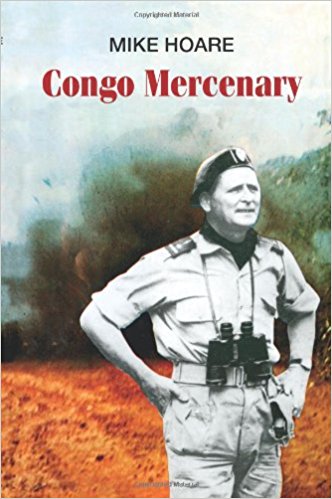|
Congo Mercenary
by Mike Hoare Published in 1979 342 Pages Thibault’s Score: 4/5 As of when I began reading and reviewing this book, the author, Mike Hoare, just turned 99 on March 17 2018. This is particularly surprising, as the author is a world renown mercenary who fought in dozens of proxy conflicts against the Soviet Union. I especially enjoyed the audiobook, which was read by none other than Mike Hoare himself. He sounds exactly the way you would imagine a British military man born in 1919 would sound. I found this book to be absolutely fascinating, and one of the most interesting explorations of the war in Congo that I have read. Mike Hoare’s view on the ground of the Congo Crisis is unique, chilling and fascinating. Mike Hoare isn’t clear on how he was hired, but when he arrived in the Congo he had been expecting to perform above ground security operations with highly professional men. Instead, he found an army of poorly trained, inexperienced, and undisciplined recruits, and cheap equipment. For example, Hoare explains that many new recruits his colleagues interviewed in South Africa were drunks and drug addicts hoping to make some quick money. As Hoare and his men make their way deeper in the Congo, they are deeply shocked by the atrocities they witness being carried out by rebels. The moment they first encounter a man who had half of his face blown off, they immediately begin to question their mission. Later on they find a room full of captured nuns and missionaries who had been gang raped and beaten to the point where Hoare at first didn’t realize they were human. Later, he and his men find a 12 year old white girl who had been kept hostage by the Congolese rebels and repeatedly gang raped for 3 months. The morale of his men quickly deteriorates - one man begins uncontrollably sobbing, saying things like “We are all doomed! We are all going to die!” and begs to be allowed to return home. Hoare himself quickly begins to develop post-traumatic stress disorder. The war in Congo was unlike anything he had experienced elsewhere during WW2. He is especially marked by the sad expression of the little girl who was gang raped, and turns to alcohol. Hoare is a tough guy but seems to have a strong moral compass. When a soldier from an allied company is caught raping a woman, he personally cuts off the man’s toes as a punishment. Many times I found myself touched by the horrors of the war, such as when Hoare visits his dying men in the hospital to comfort them. The book also reveals the rank incompetence of the Belgian government forces, and their lack of planning. Just like in modern insurgencies, like Iraq, the Belgian officials hadn’t made proper plans for after they recaptured cities. Problems really began once the rebels were defeated and a vacuum ensued. Part of this problem, Hoare explains, is because the Belgian soldiers would only stay in the country for short 3 month long blocks of time. My view of the mercenary industry was shaped by 21st century understanding and expectations. Today “private security contractors” are very professional, highly regulated, and abide to a far more rigorous standard than government police and military nearly everywhere. The popular perception of mercenaries as gun crazy alcoholics doesn’t hold true at all in 2018, but was at least somewhat accurate in the 1960s. I now understand where the stereotypes about mercenaries come from.
0 Comments
Leave a Reply. |
Thibault SerletMost of my articles are book reviews, but I also write about many other topics. Archives
December 2023
Categories |

 RSS Feed
RSS Feed